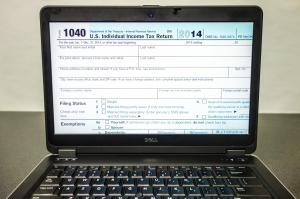Monday, May 17 is the last day to check if the IRS owes you money for an unclaimed tax return, and there is a lot to go around. The agency owes a total of $1.3 billion to Americans who never got their full 2017 tax refund according to a report by CNET. Here’s how you can check your eligibility before time runs out.
It is the IRS’ policy to hold onto unclaimed tax refunds for three years, giving Americans a chance to claim them before funneling them back into the U.S. Treasury. That means this year, they will absorb all of the unclaimed refunds from 2017 unless they are spoken for by the end of the day on Tax Day. The only way to check your eligibility and claim your refund, however, is to file a 2017 tax return belatedly.
Videos by PopCulture.com
To do this, you will need to fill out the appropriate tax forms from the IRS here and submit them either electronically or through the mail. If you choose to use the mail, the forms must be postmarked no later than May 17 — the tax day allotted in light of the coronavirus pandemic.
If you are years behind on your tax filings, however, this could hold up your return even further. The IRS will not release a 2017 refund if 2018 and 2019 tax returns have not been filed as well. Note that the agency’s “Where’s My Refund” tool on its website will not be any help in these situations either.
Filing taxes for years so far in the past may sound daunting, but the IRS does its best to streamline the process. It has all of the required forms available on its website here, and it has instructions for requesting a missing form like a W-2, 1098, 1099 or 5498. In most cases, either your employer or your bank can supply these quickly, and the IRS itself also has a wage transcript which you can request here.
In some cases, you may not receive your belated refund in cash but instead see it reflected in some form of debt — including overdue federal or state taxes, child support, spousal support or federal student loans. It could even go towards debt incurred by claiming unemployment benefits. While this may not be the boon many people were hoping for, it is worth taking a look if you believe you may have missed out on a big tax refund.



